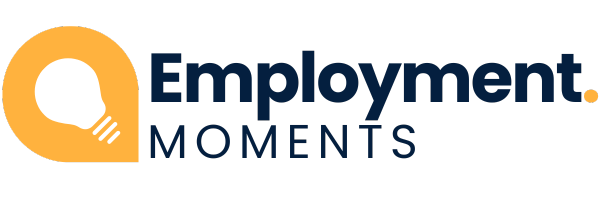Starting your job search can be both exciting and tough. Many new graduates find it hard to stand out in the job market. We want to help you find a job fast and avoid mistakes that could slow you down.
By knowing the job market and what employers look for, you can boost your chances. This way, you can start your career with confidence and success.
Understanding the Job Market for Entry-Level Positions
It’s crucial for new graduates to understand the entry-level job market. Many emerging industries offer great opportunities for first-time job seekers. By knowing where the growth is, job hunters can aim their efforts better and boost their chances of getting hired.
Research Emerging Industries
Fields like technology, healthcare, and renewable energy are booming. These areas not only have lots of entry-level jobs but also often prefer to hire new graduates. Keeping up with these sectors and their trends helps job seekers target their search effectively. Reading reports and publications can guide new graduates in the right direction.
Identify Key Skills Employers Seek
Employers want a mix of technical skills and soft skills in entry-level roles. They look for specific technical skills, but also value communication, teamwork, and problem-solving. Job seekers should work on these skills to stand out. The Bureau of Labor Statistics offers valuable insights into what employers look for in different fields.
How to Get a First Job Quickly
Finding your first job can be tough, but you can speed up the search. Focus on making your resume and cover letter stand out. These steps can help you get more interviews and land your dream job.
Crafting an Effective Resume
Your entry-level resume should highlight your most important experiences and skills. Even small jobs or volunteer work can count. Use numbers to show your achievements, like sales increases or events organized.
Also, use words from job ads to match what employers want. This shows you’re a good fit for the job.
Tailoring Your Cover Letter for Specific Roles
Writing a good cover letter is key. Each one should talk about why you’re right for the job. Mention how you fit the company’s culture and what you can bring to the role.
Use tools like Grammarly and Canva to make your documents look professional. This shows you’re serious about the job.
Networking Strategies for New Graduates
Networking is key in the job hunt, especially for new grads in a tough job market. Making connections can lead to opportunities not found through usual job searches. Using social media and attending professional events can boost a graduate’s chances of finding a job.
Leveraging Social Media Platforms
Platforms like LinkedIn are great for job seekers. They should make a strong profile that shows off their skills and achievements. Joining groups in their field lets them talk about trends and make connections.
Being active in these groups by commenting and sharing can help them stand out. Keeping their profiles up to date with new experiences and skills makes it easier for employers to find them.
Attending Job Fairs and Networking Events
Job fairs and events are great for meeting people face-to-face. They give new grads a chance to meet hiring managers and show interest in jobs. It’s important to prepare by researching the companies and practicing a good elevator pitch.
The National Association of Colleges and Employers (NACE) says going to different events can help build relationships that might lead to job offers.
Avoiding Common Job Search Mistakes
Starting your job search can feel scary. It’s full of applications and interviews. Making mistakes is easy, but knowing how to avoid them is key.
Applying to Jobs Without Customizing Applications
Many people send out the same job application everywhere. But, customizing your application shows you really get the job. It makes your resume and cover letter stand out.
This shows you’re serious and interested. Hiring managers love to see this. It can get you an interview.
Neglecting Follow-Up Communications
Not following up after applying or interviewing is a big mistake. A quick thank-you email shows you’re still interested. It’s a big plus in the eyes of employers.
According to CareerBuilder, employers like candidates who follow up. It keeps you in their mind and shows you’re professional.
Conclusion
Starting your job search in the entry-level market can be tough. This article has given you a detailed look at how to tackle it. It’s key to know the job market and what skills employers want.
Networking is also crucial. Using social media and going to job fairs can help you find jobs not listed online. Avoiding common mistakes like sending out generic applications can really help.
By following the tips in this article, you can improve your job search. Even though finding your first job has its hurdles, using the advice here can make you feel more confident and prepared.

